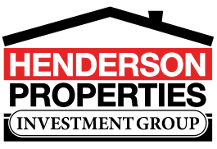Buying Income Property Tips
Buying Income Property Tips

Mastering Rental Property Investments
Rental property investments can be lucrative, offering property owners a steady income and long-term financial security. However, like all professional endeavors, you should start with a strategy.
What Is An Investment Property?
A real estate asset purchased to generate income through rental activities, capital appreciation, or both is considered an income property. Rental properties can include single-family homes, condos, multifamily units, retail storefronts, office buildings, or other commercial structures. The investor earns a return by collecting rent from tenants monthly and managing the property over the long term for a profitable sale.
Mortgage Requirements For Buying An Income Property
Lenders have specific requirements for investment property loans, which may differ from those of primary residence loans. Some key factors to consider include:
- Down Payment – Real estate investors should prepare to have 20-25% of the property’s total purchase price available in cash for a down payment. A more significant cash down payment reduces lender risk and provides buyers primary equity before generating income.
- Credit Score – Credit history is essential when assessing borrowers’ loan repayment ability. Generally, a credit score of 720 or higher is ideal to qualify for the most favorable rates and terms.
- Debt-To-Income Ratio – Lenders evaluate borrowers’ debt-to-income (DTI) ratio. This ratio gets calculated by gross monthly income vs. debt repayment. A lower DTI ratio indicates a better ability to manage debt and increases your chances of loan approval. Most lenders prefer a DTI ratio below 43% for investment property loans.
- Cash Reserves – Lenders may require borrowers to have cash reserves to cover unexpected expenses or vacancies. Depending on the lender’s requirements, the minimum amount required can range from three to six months of mortgage payments.
How to Get An Income Property Mortgage
If you’re looking to obtain an investment property mortgage, you should follow several important steps. First and foremost, it’s crucial to understand the specific requirements for these types of mortgages. Once you clearly understand what is expected of you, you can begin the application process.
One of the most important things to consider when applying for an income property mortgage is the lender you choose. Unfortunately, not all lenders offer investment property loans, so shopping around and finding one that caters to your specific needs is important. Take the time to compare interest rates, fees, and loan terms to find the best deal.
You’ll need to provide various documents to the lender to apply for an investment property mortgage. These documents typically include tax returns, bank statements, pay stubs, and credit reports. Collecting and organizing these documents ahead of time is a good idea, as having them readily available can help expedite the loan approval process.
Once you’ve found a lender and organized your documents, the next step is to get pre-approved. Obtaining a preapproval letter from a lender can help you understand how much you can borrow and show sellers that you’re a serious buyer. In addition, a preapproval letter can give you a competitive edge in fast-moving markets, making it an important step in the investment property mortgage process.

Tax Considerations for Rental Property Owners in North Carolina
As a rental property owner in North Carolina, there are tax implications that come with real estate investments. Key tax considerations include:
- Rental Income – Income from rent is subject to federal and state income tax. Account for all rental receipts and expenses to ensure accuracy when filing taxes.
- Depreciation – As a rental property owner, you can claim depreciation on your property. Depreciation is an annual deduction that allows you to recover the original property cost over the useful life. Depreciation helps reduce taxable income and saves money on taxes.
- Expenses – Property owners can deduct various rental property expenses, including repairs, mortgage interest, insurance, property taxes, and maintenance. Itemize your costs diligently, as these deductions can help offset rental income and lower tax liability.
- Capital Gains Tax – Upon the sale of an investment or rental property, property owners could be responsible for capital gains tax on profits, depending on the length of ownership and the amount of appreciation. In some cases, a 1031 exchange can defer capital gains tax to reinvest the proceeds from the sale into another like-kind property.
- Local Taxes – North Carolina rental property owners may be responsible for paying local taxes, such as property and occupancy taxes. Review local tax laws or consider meeting with a local tax advisor to ensure compliance and avoid surprises.
Final Thoughts
At Henderson Investment Group, we understand the immense value of investing in rental properties. Our team has the expertise and experience to help you find the right income properties in Charlotte, NC, and surrounding areas. In addition, we can help you create a strategic plan to generate a steady stream of rental income and build long-term wealth through property appreciation.
Our approach involves carefully selecting properties, managing them efficiently, and staying informed about market trends and tax implications. As a result, you can create a solid foundation for a successful investment portfolio by working with us. Moreover, you can diversify your financial assets and contribute to the growth and prosperity of your community.
Investing in rental property is an opportunity you want to take advantage of. Contact Henderson Investment Group to help you find the best investment properties in Charlotte, NC, and surrounding areas. Let us guide you toward financial security and income-producing opportunities.








